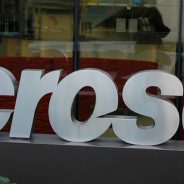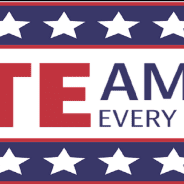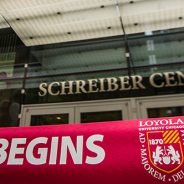Search results for :
Best Places to Intern in Houston
Most students pursuing an MBA in Houston already know that success comes from what happens both in and outside of a classroom. The value of networking, competitions and internships is almost immeasurable—but not quite.
Professor to Know: Alex Edmans, London Business School
There’s one thing that every top business school around the world has in common: impressive faculty. That’s because MBA programs know that their offerings are only as exceptional as their professors, and that’s definitely the case at the London Business School.
Faculty at LBS are at the forefront of innovative business thinking. They’re influential business leaders, managers and policy makers who conduct world-class research and teach topnotch courses. In fact, according to a recent review published in 2014, London Business School received a top four rating for its research performance. And there’s no better representation of LBS’s faculty than finance professor Alex Edmans.
About Professor Alex Edmans
Professor Edmans graduated from Oxford University in 2001 with his bachelor’s degree in Economics and Management. From there, he pursued a career at Morgan Stanley working in investment banking and fixed income sales and trading. Then, a few years later in 2003, he went back to school to receive his Ph.D. in Finance from MIT Sloan as a Fulbright Scholar. In 2007, he became a professor at Wharton, earning his tenure by 2013 before moving to LBS. And, so far, Professor Edmans’ teaching career has been prestigious.
Over the past six years, he’s won 14 teaching awards. At Wharton, he was the highest-rated finance professor in the MBA program before his departure and was even chosen as the Faculty Graduation Speaker to the MBA class of 2014. And then, just this year at LBS, he was given the MBA Class of 2016 teaching award for the highest-rated professor school-wide and the Best Teacher: MBA 2016 award.
Outside of his exceptional teaching, Alex Edmans is a prolific researcher, blogger and Twitter user (you can follow him @aedmans). His blog, Access to Finance, covers a variety of topics and excels at making finance research available to anyone and everyone. It’s written for people with a non-finance background who might not normally be interested in finance but want to stay on top of current trends and events.
As for Edmans’ research, his most recent publication was published in the Journal of Financial Economics on October 27, 2016. Titled “The Source of Information in Prices and Investment-Price Sensitivity,” it discusses the value of financial markets to the real economy. Other research topics have included “Equity Vesting and Investment,” “Blockholders” and “Governing Multiple Firms.”
As you can see by just the most basic facts, Alex Edmans isn’t an ordinary professor. But that’s just the surface. We wanted to get to know Professor Edmans, so we asked him five questions about his life and work as a faculty member at the London Business School.
- What do you love most about teaching at the London Business School?
I really enjoy the diversity of the student body—not just nationalities, but also educational and career backgrounds. This brings lots of different perspectives to class.
I also enjoy the fact that I teach core courses. It’s easy to teach an elective since students have self-selected into the class, so you know they’ll like it. The core is challenging because I teach students who may not like finance, may even be scared of finance, and only take it because they have to. I like this challenge. It means that I have to make finance interesting and accessible, and hopefully, students end up enjoying the class even if they dreaded it to start with.
- What do you hope students take away from your research, teaching, and speaking?
Teaching: I would like students to be able to think for themselves and understand the intuition behind the concepts, which they can apply to any real-world situation—rather than just knowing the formulas that they can plug numbers into in order to solve an exam problem.
Research: The importance of large-scale, rigorous, academic research in a world where policy is increasingly formed on anecdote or myth. That “academic” research isn’t irrelevant but has substantial relevance for the real world.
Speaking: I give a number of talks on personal leadership, not just finance. I would like students to choose careers that are personally fulfilling, rather than just the career that happens to be hot at the moment. And I would like students to be mentally present in everything they do, not just physically present.
- In an era where corporate responsibility is becoming more important than ever, what do MBAs need to know and keep in mind?
That companies should do things for intrinsic and not instrumental value—even if there is no clear profit benefit for an action. This applies to your personal life too—to help a classmate even if you don’t clearly benefit from it, or learn something even if it won’t be on the exam.
- Which of your blogs would you most recommend for MBAs to read?
My blog, Access To Finance, aims to make finance accessible to a general audience by taking complex academic papers, or topical issues (such as Brexit or the current debate on executive pay), and making them simple. Which articles in the blog to read depends on the MBA’s interest, and so it’s hard for me to recommend some over others. My Twitter feed @aedmans also aims to showcase simple, accessible articles on real world finance.
I would also recommend two talks that I gave which may be of particular interest to MBAs. One is my TEDx talk, “The Social Responsibility of Business”, on the business case for sustainability, and the other is “Fulfilling Careers and Full Lives”, the final lecture of my MBA course, which is similar to a graduation speech in that it provides general advice for how MBAs can make the most of their talents and opportunities to serve society, but aims to do so in a concrete and actionable rather than sugary and saccharine way.
- What makes your teaching/classes different at LBS?
In every class, I have an “extra-curricular break,” which takes a complex academic paper with real-world relevance and makes it accessible for a practitioner. Indeed, my blog spun out of these extra-curricular breaks.
- While a core class is theoretical and rigorous, I always try to emphasize the evidence to the real world, drawing from my own practitioner and policy experience.
- I cold-call students. This is absolutely not to scare them, but to keep the class interactive and the students engaged, and to give the students practice in solving problems themselves, rather than just following someone else. It also ensures the pace of the class is not dictated by the students with finance backgrounds; cold-calling means that a broad set of students end up contributing.
- I play music before class and during the breaks, and dress down. This is absolutely not intended to be a gimmick. Instead, it is to conduct class in as relaxed an atmosphere as possible, to make students relaxed about asking questions and not be afraid to be cold-called. The music aims to bring energy to the class, which is particularly important when studying finance at 8:15 am on Monday morning!
Top MBA Recruiters: Microsoft
Past, present and future business school students lured by the siren song of the tech industry should look no further than Microsoft, the $407 billion semi-benevolent techno giant that employs nearly 100,000 from its Redmond, Washington headquarters.
Continue reading…
Top Part-Time MBA Programs in Boston
Attending an MBA program is an involved decision that isn’t made lightly. For many, a full-time program comes with the cost of missed work, salary and benefits for two years at a time when that sacrifice is hard to swallow. Thankfully, most schools also offer a part-time MBA program that’s perfectly designed for working professionals.
Part-time MBA programs focus on flexibility and experience. Classes typically take place online, in the evenings, or over the weekend, so that as little work as possible is missed. It’s a great option for professionals who can’t or don’t want to give up their career but still want to enhance their skills.
So, where should you go to school in Boston if you want to attend a part-time MBA program? There are quite a few options. Continue reading…
Top Sports Management MBAs in Toronto
Are you obsessed with sports? Did you find yourself cheering for the Cubs first World Series win in over a century? Did you watch every match of the last FIFA World Cup? Do you participate in every fantasy league and feel that you could make a better team, get better players and make better decisions than any current sports management person? Well, then you should consider an MBA in Sports Management. Continue reading…
Hot MBA Jobs – Chief Information Officer
Chief information officers (CIOs) are, along with chief executive officers, chief operations officer and chief financial officers, among the highest ranking executives at a company or organization. First defined in 1981 by William R. Synnott, former senior vice president of the Bank of Boston, and William H. Gruber, former professor at the MIT Sloan School of Management, CIOs are responsible for a company’s technical direction. Continue reading…
Los Angeles MBA Programs without GMAT/GRE Requirements
Applying for an MBA program is an involved process. You have to fill out the application, write essays, ace an interview, develop a “killer” resume, and ask for stellar letters of recommendation. It’s a more involved process than any job application or interview and how well you do can affect your life and job prospects for years to come. Worse yet, most programs also require the GMAT or GRE, increasing your workload and stress exponentially. Continue reading…
Sloan Hosts Leadership Talk from Red Hat CEO
MIT Sloan recently published an article on a leadership strategies seminar that Jim Whitehurst, CEO of open source software company Red Hat and author of The Open Organization: Igniting Passion and Performance presented last week as part of the Innovative Leadership Series.
Trump vs. Clinton: What It Means to Business School Students
It may be U.S. citizens headed to the polls today, but another group is watching the outcome of the presidential election pitting Donald Trump against Hillary Clinton with much more than simply passing interest. Prospective international students thinking of studying in the United States could be significantly impacted by today’s outcome.
National Public Radio (NPR) last month reported on a survey—conducted by FPP EDU Media, a company that matches international students with international programs, and college marketing company International Education Advantage LLC (Intead)—that found that of more than 40,000 prospective students surveyed from 118 countries around the world, 60 percent said they were less likely to study in the United States if Trump is elected, compared to 3.8 percent who reported they would be less likely to choose a U.S. school if Clinton wins.
The survey didn’t ask why, but Intead CEO Ben Waxman told NPR that he suspects Trump’s positions on immigration—including a proposed ban on Muslims entering the country and a wall on the Mexican border that Mexico would pay for—were likely factors. In breaking out prospective students by individual country, the survey found that 80 percent of Mexican students said they would be less likely to study in the U.S. with Trump in the White House.
We should note that the FPP EDU Media/Intead survey included prospective students at both undergraduate and graduate levels and did not break responses out by level of study.
To get a sense of how many international students contemplate graduate management study in the United States, we turned to the Graduate Management Admission Council (GMAC). According to GMAC’s most recent Applicant Trends survey, the majority of applicants seeking admission to full-time two-year MBA programs for the incoming class of 2016-17 were international candidates, representing 52 percent of the applicant pool. Domestic candidates accounted for the remaining 48 percent. The percentage of international students who ultimately enroll at leading business schools is not quite that high, although at most schools they make up a solid third of the class or more. The University of Pennsylvania’s Wharton School this year welcomed 32 percent international students as part of its incoming class, Harvard Business School (HBS) and Kellogg School of Management each boast 35 percent international students and UC Berkeley’s Haas School of Business is at 38 percent.
So, how international applicants perceive study in the United States based on the results of this election could have significant impact on graduate management education as a whole as well as on individual MBA programs at some of the nation’s top schools.
Trump’s Potential Impact on Leading MBA Programs Limited, Hope Some
Rafael Rivera, a dual-degree candidate at HBS and the Harvard Kennedy School, says that if he were just now applying to business school, a Trump victory wouldn’t deter him from coming to the United States. “Even if Donald Trump wins, the U.S. has still a strong, vibrant economy, which has better prospects than other regions such as Europe or Latin America,” he tells Clear Admit. “Also, the best MBA programs are here. I don’t see why the quality of those programs would go down if Trump wins.”
That said, Rivera does have friends and colleagues in his home country of Mexico currently applying to MBA programs who have expressed disappointment about the American elections. “As you can imagine, Mexican citizens feel offended by the constant negative comments of the Republican candidate and his intentions to build a wall.”
HBS Poll Finds Hillary a Clear Favorite
A project Rivera and a fellow HBS classmate undertook earlier this fall underscores how much the U.S. election is in the minds and hearts of even those who can’t cast a ballot. Rivera, together with Jeremy Au, HBS Class of 2017, polled fellow HBS classmates in late September and early October for a pioneering election poll published in the Harbus student newspaper on Oct, 19th.
Rivera and Singapore-born Au are both foreign nationals, which means they cannot vote in tomorrow’s elections. “The idea came because we are both interested in politics (in our respective countries), and we are really interested in getting to know people’s opinion regarding public issues,” Rivera tells Clear Admit. “We hear a lot about polls around the U.S., but we really didn’t know what our classmates think about national issues,” he continues.
These motivations—as well as a poll run by undergrads for the Harvard Crimson—inspired them to run their own poll. “We didn’t have any particular agenda with this poll—we only had the curiosity to know the opinion of our classmates in such important days,” Rivera says. Between Sep. 19th and Oct. 3rd, 236 first-year HBS students were surveyed across multiple sections via in-class voting with privacy screens, and the data was weighted for nationality and gender.
What They Found Surprised Them
Rivera and Wu, in a Harbus piece later republished by the Huffington Post, revealed their findings: HBS students clearly favor Clinton. Clinton received 85 percent of the vote, compared to Trump’s 3 percent. Libertarian nominee Gary Johnson beat out Trump as well, garnering support from 10 percent of those polled. Green Party nominee Jill Stein brought up the rear, trailing just behind Trump with 2 percent of the vote.
“American and international students did not show a statistically significant difference in their preferences,” wrote Rivera and Wu. That said, international students were slightly more in favor of Clinton (88 percent) and even less in favor of Trump (1 percent) than their U.S. classmates (84 and 3 percent respectively). In fact, among international students, Trump trailed both third-party candidates as well, with Johnson getting 7 percent of the vote and Stein getting 4 percent.
Of course, these results are nothing like the incredibly close race suggested by the most recent polls of U.S. voters. As of this writing, Nate Silver’s FiveThirtyEight website shows a popular vote narrowly in Clinton’s favor, 48.8 percent compared to 45.1 for Trump, with Johnson claiming another 4.7 percent.
Rivera and Wu cite four key factors as contributing to Clinton’s lead among HBS students: Obama’s high approval rating among HBS students (88 percent) relative to U.S. voters (52 percent); more HBS students lean Democratic (53 percent) than U.S. voters (36 percent); more HBS Dems support Clinton (94 percent) than HBS Republicans support Trump (52 percent); and HBS independents fall overwhelmingly in Clinton’s camp (80 percent compared to 0 percent for Trump).
Wu and Rivera also note that HBS students are more socially liberal than U.S. voters—on issues ranging from stricter gun control to women’s rights. Where immigration is concerned, HBS students are three times more likely to support increased immigration (63 percent, compared with 21 percent of U.S. voters). On the issue of immigration, 68 percent of international HBS students favored increases, compared to 60 percent of their U.S. classmates.
Interestingly, on the question of whether the distribution of money and wealth in the United States today is fair, HBS student sentiment was almost identical to U.S. voters, with 62 and 63 percent respectively responding that it should be more evenly distributed among a larger percentage of the people. But in terms of how that redistribution might take place, HBS students were divided. Of U.S. HBS students, 38 percent were in favor of heavy taxes on the rich for wealth redistribution. More than half—53 percent—of international HBS students were in favor of higher taxes.
Rivera and Wu cite three factors they believe as potentially contributing to the overall poll results. “HBS students have higher levels of education, higher levels of household income and are younger than the general U.S. population,” they write as factor one. “Most HBS students have work experience in the private sector, and are thus more exposed to workplace issues, international markets and diverse work teams,” they cite as the second factor. “First-year HBS students have also undergone 2 months of daily interactions within 90-student sections, which are sorted for high diversity in nationalities, ethnicities, and experiences,” they offer as a third factor (the complete survey methodology and results can be viewed here).
Wharton Wary of Association with Trump
HBS was the only leading business school we found that had conducted its own election poll, but it is certainly not the only school where anti-Trump sentiment has been documented. Much earlier in the campaign, students at the University of Pennsylvania’s Wharton School sought publicly to distance themselves from the viewpoints of fellow Wharton graduate Trump (who completed two years of college at Wharton after transferring from Fordham and received his undergraduate degree from the school.Trump does not hold a Wharton MBA degree).
In an open letter in July published on Facebook, a contingent of Wharton students, alumni and faculty set out to make clear that Trump does not represent them. “We, proud students, alumni, and faculty of Wharton, are outraged that an affiliation with our school is being used to legitimize prejudice and intolerance. Although we do not aim to make any political endorsements with this letter, we do express our unequivocal stance against the xenophobia, sexism, racism, and other forms of bigotry that you have actively and implicitly endorsed in your campaign,” read the letter, which had garnered more than 600 signatures within days of its publication. As of Nov. 6th, 4028 people had signed.
Likewise, the newspaper of Trump’s alma mater elected not to endorse him for president. In a letter published on Oct. 18th, the Daily Pennsylvanian wrote, “We at the Daily Pennsylvanian are concerned about the precedent that Donald Trump sets for our fellow peers and how he chooses to leverage his affiliation to Penn to the rest of the world. His divisive policies are not only orthogonal to those of Penn, but to democracy.” The letter concluded, “The Daily Pennsylvanian Opinion Board cannot stand behind Donald Trump as a candidate.”
To be sure, the views expressed by the Daily Pennsylvanian are those of the paper’s board—not of the University of Pennsylvania or of Wharton. Both have remained steadfastly tight-lipped throughout the contentious election season about the bombastic alumnus. According to both Politico and the Daily Pennsylvanian, administrators in fact sent an email to Wharton faculty shortly after Trump announced his candidacy in summer 2015 encouraging them to decline media requests for comment and instead direct queries about Trump to the school’s communication staff. The communications staff, for its part, has consistently refrained from commenting.
This post was republished with permission from Clear Admit.
The Best Business Schools for San Diego Veterans
Home to the third largest concentration of veterans in the country, San Diego is an ideal stopping place for military personnel. In fact, each year, around 15,000 sailors and Marines stationed in San Diego leave the service, according to the Voice of San Diego. So, it’s no wonder that programs, organizations and services dedicated to helping them readjust to civilian life are essential. And there’s no doubt that education is one of the vital pieces.
In honor of Veteran’s Day on Nov. 11, we researched San Diego’s top business schools to find out what each school offers regarding scholarships, financial aid, career services and more. Continue reading…
Hot MBA Jobs: Chief Technology Officer
When thinking about executive-level positions within companies the first titles that always come to mind are CEO, CF, and CIO, but for technology companies, there’s another vital position—CTO (Chief Technology Officer). The CTO is focused solely on scientific and technological issues within an organization as well as research and development (R&D). It’s a role that is in high demand and difficult to obtain, which is why an MBA can give you that leg up you need.
The truth is that MBAs and the tech industry are starting to go hand-in-hand more than ever before. In 2015, 37.8 percent of UC Berkeley’s Haas School of Business graduates joined the technology industry. And at MIT’s Sloan School of Management, 30.6 percent of their MBAs entered the high technology industry (computers/electronics, software/internet, and telecommunications).
So, what exactly does it take to be a chief technology officer and what do they do?
Continue reading…
Healthcare Management MBA: Philadelphia
Philadelphia is dominated by the healthcare industry. In fact, in 2013, health care accounted for 22 percent of the jobs in the city, or about 146,000 jobs and $6.7 billion in annual salary. It makes healthcare far and away the city’s largest employment sector. And it makes sense considering Philadelphia’s largest employers include the Children’s Hospital of Philadelphia, Temple University Hospital, Independence Blue Cross and Pennsylvania Health, just to name a few. Continue reading…
Columbia Prof Talks Solar Financial and Technological Woes
Columbia Business School recently published an article that explores the uncertain future of solar energy–strange, considering we are hot on the heels of a bona fide solar feeding frenzy due in no small part to federal tax credits and 70 percent drops in prices due to low-cost Chinese panels.
Columbia professor of professional practice Bruce Usher says, “The challenge to solar has long been who’s got the money to spend up front and who wants to take the risk.” The article explains that SunEdison figured out that the solution was leasing solar systems as opposed to selling them. Their model, which is ideal for reduced risk, spread like wildfire to competitors like Sunrun, SolarCity and Vivint. According to research, “more than 70 percent of residential installations in the three largest American solar markets—California, Arizona, and Colorado—were leased.”
Usher explains the underlying catch-22 of the solar explosion (or should I say implosion?): “In the majority of states today, consumers can switch to solar and save money.” But the squirreled-away cash is a result of net-metering, a process by which customers sell electricity back to the grid. “If you can’t sell electricity back to the grid, the economics of solar are terrible. The vast majority of power generated is in a five-hour window during the day. You can’t use it all, so you need to sell it back to the grid.”
Cameron explains that these grids are clunky, expensive, and nearly obsolete but discarding it altogether isn’t really an option: “A grid connection is a guarantee of power when you need it.” The Energizer bunny just ain’t gonna cut it.
“When it comes to net metering, residential consumers shouldn’t get the full retail rate, but they shouldn’t be cut off from the grid either. The answer is somewhere in between. The government needs to set those rules today, and set them in a way that reflects the way the whole energy system in this country is changing.”
The Best Finance MBA Programs in London
The economy of London is dominated by the financial services industry. In fact, the city is the largest financial exporter in the world and is home to exchanges, banks, brokers, pension funds, reinsurance markets and more. It’s also a notable center of international finance and home to the second oldest central bank in the world: the Bank of England. Other major financial institutions in London include the London Stock Exchange, the London Bullion Market and HSBC.
So, it’s no wonder that London is a top destination for MBAs looking to enter the financial industry. But where should MBAs head to school for their best chance at success post graduation? We’ve outlined our top five Finance MBA programs in London to give you a head start on the process. Continue reading…
Loyola Quinlan Launching Incubator To Fight Chicago Poverty
In spring 2016, the Quinlan School of Business launched the Urban Social Benefit Incubator, which aims to connect social entrepreneurs and business leaders to create innovative solutions to help marginalized communities in the fight against poverty. According to statistics reported by Quinlan, 14 percent of Chicago metro residents live below the federal poverty line, which is currently defined as an income of $24,300 for a family of four. This is slightly above the U.S. national average of 13.5 percent, according to the U.S. Census Bureau. Continue reading…
Hot MBA Jobs: Marketing Manager
If there’s one career field that has grown by leaps and bounds and changed dramatically over the last few years, it’s marketing. In the era of Mad Men, marketing and advertising were only for the large companies that could afford to buy commercials, billboards and magazine placements. Now, marketing management is a necessary part of any and every business no matter if it’s a one-person startup or a multi-billion dollar organization.
Top MBA Recruiters: Adobe Systems
According to Facebook COO Sheryl Sandberg, an MBA may not be needed to work in the tech industry. That doesn’t, however, stop it from being a valuable asset. Digital career platform Tapwage analyzed more than 100,000 job listings in Silicon Valley to see how important and MBA was when getting a career in the tech industry. They found that at top companies, such as Facebook, Google, Amazon, and Apple, about 9 percent of the total job openings had a preference for an MBA or a requirement. Continue reading…
Real Estate MBA Opportunities in Philadelphia
With 2.7 million payroll jobs, Philadelphia ranks as the eighth-largest job market in the nation. And recently, the city has shifted to a service-based economy, making it an excellent location for MBAs looking for a job in real estate. Continue reading…


















